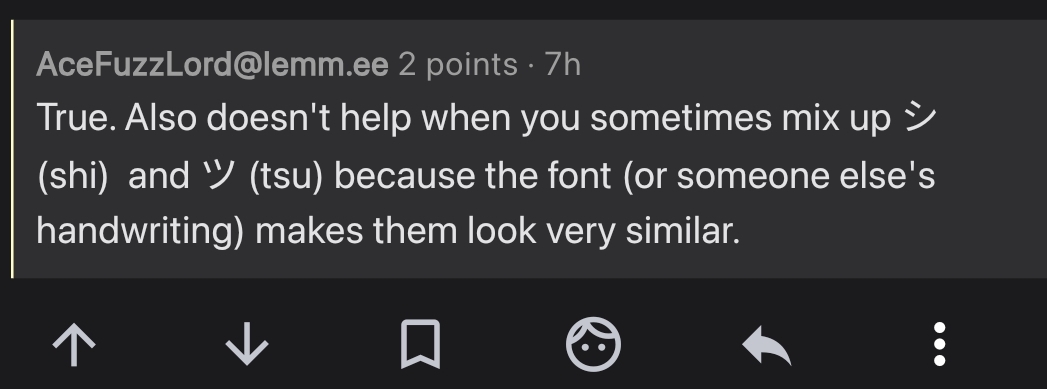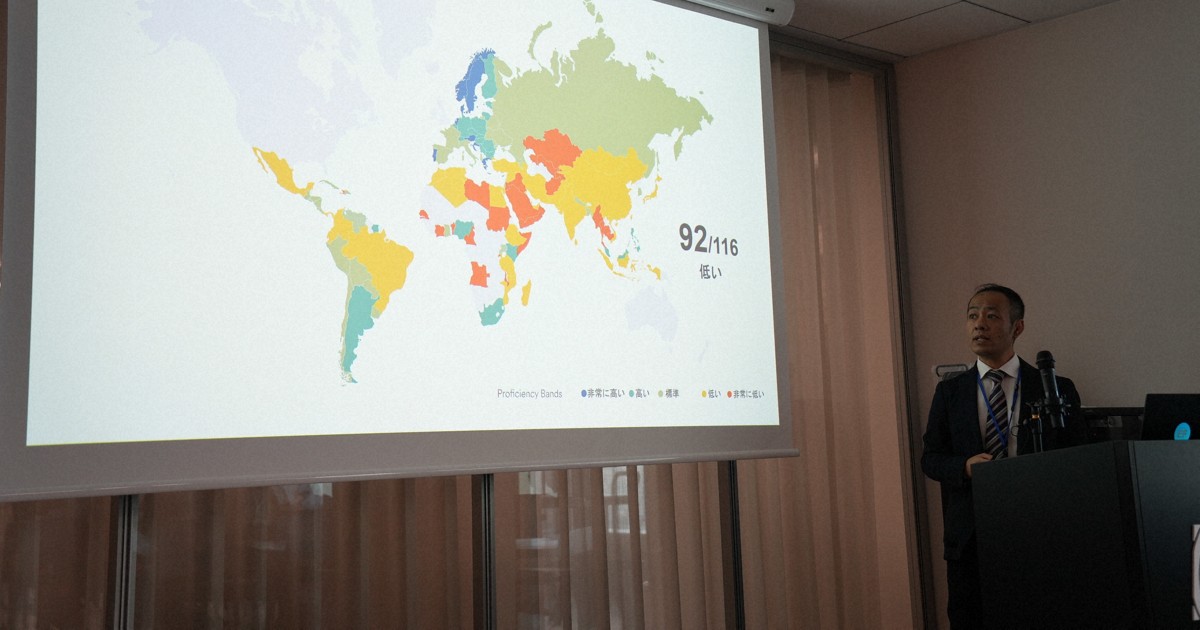Summary
Japan’s English proficiency ranking dropped to 92nd out of 116 countries, the lowest ever recorded.
The decline is attributed to stagnant English proficiency among young people, particularly due to the COVID-19 pandemic.
The Netherlands ranked first, followed by European countries, while the Philippines and Malaysia ranked 22nd and 26th, respectively.
Makes me wonder what America’s or England’s proficiency in Japanese is.
English classes are required (I think from elementary school as of a few years ago) but, from talking to a lot of teachers in my time here, the actual teachers just use the English speakers they bring over here to parrot phrases and won’t let them actually correct things like pronunciation in a lot of cases. I know many Japanese who think the whole program (JET) is a waste, and I’m inclined to agree in its current state.
Japan is like 98.5% Japanese the last time I looked it up. English is completely unnecessary in Japan outside of some very specific jobs and on certain entrance exams (which are also just there for the sake of the test). If a child doesn’t want to learn and the quality of the education is lacking, even with all the money dumped into it, it’s useless. Back during the bubble economy ending in the '90s it may have been different, but job prospects requiring English outside of hospitality, tourism, and some specific medical and government jobs are non-existent. Even then, it often makes more sense to use a translator or to keep one on staff.
Japan either needs to get serious about its English education or just stop wasting money on an ineffective program and focus resources into classes or schools to develop people who actually want to learn. I say this as someone whose taxes fund it.
Japan’s PM gas responded to the report “We are velly solly”
Rookie mistake. They should have surveyed the country’s Engrish proficiency.
Brasil is higher than Japan?? It’s Japan that don’t care to learn English because they can do “everything” in their country without the need to know english?
Is it really that surprising? If you’ve ever played a video game before, you’d know that pretty much every Brazilian speaks English.
So, for comparison, how do English speaking countries rank in ability to speak Japanese?
Here is the link to the report. It wasn’t in the article.
It’s still higher than the United States.
tbf, the Japanese proficiency of English-speaking nations is probably lower.
It is a tricky language. Almost nothing in common with Indo-European languages except loan words. Completely different grammatical structure. Three different writing scripts.
At least the pronunciation isn’t too bad coming from English as all the usual sounds are represented within our phonology. Compared to Spanish rolling R’s, Russian and Arabic consonant clusters, Chinese tonality, and other difficult to pronounce languages.
as all the usual sounds are represented within our phonology
Is what you’d think, but nope. Their r, sh, j, ch and w and u sounds are slightly different from English (enough so that some languages have the English version and the Japanese version as independent sounds), the lone n consonant has a pronunciation not existent in English, and Japanese has a tone system but it’s simple enough a foreigner can get by without knowing it. That is to say, Japanese pronunciation is very different from English and decently hard to master, but if you just pronounce it like you would English (without stress of course, absolutely don’t add stress) you shouldn’t have a problem getting your point across.
Russian and Arabic consonant clusters
Wait Arabic consonant clusters? If anything Arabic has less consonant clusters than English. As a native Arabic speaker what I would think is a problem for English natives is the consonants themselves, because we have a lot of them and many don’t exist in English.
Thanks for confirming. I don’t speak Japanese but my sister studied it for a few years, and according to her, teachers were always impressed with her perfect pronunciation. We’re both native Spanish speakers in an English speaking country. From what I gather, Japanese phonology has more in common with Spanish or Italian than with English.
Which is ironic given how many English loanwords have infiltrated the language in recent times, to the point where sometimes I hear Japanese speak in a not overly formal context and half of the words they say are just English words with Japanese pronunciation.
Having learned both english and now in the process of learning Japanese, katakana English is so confusing sometimes. It’s kind of correct when you don’t think about what’s actually written, but you sometimes have to think long to understand that an エアコン (eakon) is just an air con(dition).
True. Also doesn’t help when you sometimes mix up シ(shi) and ツ (tsu) because the font (or someone else’s handwriting) makes them look very similar.
Alignment/starting position is the key. The "-like strokes in shi are left-aligned, the "-like ones in tsu are top-aligned. Same for ‘so’ and ‘n’. This is why people talk about stroke order being important (although in this case it’s not simply the order).
I don’t know Japanese at all, but the way my phone renders those characters I can’t tell anything about stroke order, and can only tell them apart because they’re next to each other…

I imagine there might be larger differences with Japanese specific fonts, but with whatever this one is the difference seems about the same as using italics with Latin characters…








